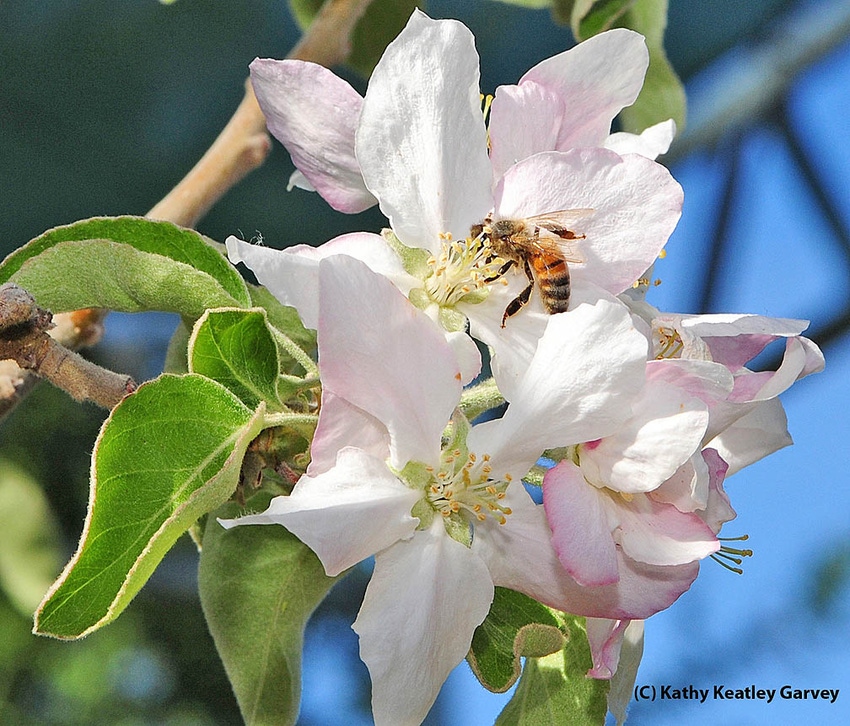May 17, 2013

"For many years, beekeepers and environmentally interested individuals have expressed the opinion that the use of neonicotinoid insecticides ("neonics") have interfered with the ability of honey bees and native bees to conduct their life activities properly," begins Extension apicuturist Eric Mussen of the UC Davis Department of Entomology in his latest edition of his newsletter, from the UC Apiaries.
"Since laboratory studies have detailed the disruptive effect on those insects, it was suggested that the same things were happening in the field. Unanticipated losses of formerly strong honey bee colonies, and easily observable decreases in bumble bee sightings, correlated well with increased use of neonics."
(See Bee careful with pesticides)
Mussen goes on to talk about the neonic situation in Europe and what the European Food Safety Agency (EFSA) has to say about the controversial issue. EFSA concluded that the neonicotinoid pesticides posed a “high acute risk” to pollinators, including honey bees, but that a definitive connection between the chemicals and loss of colonies in the field remained to be established, Mussen wrote.
Mussen, California's only Cooperative Extension apiculturist and a member of the UC Davis Department of Entomology faculty since 1976, says the situation is not that simple. Read why. His newsletter is available free on the UC Davis Department of Entomology website. Access his web page and then click on "March/April 2013."
More from Western Farm Press
Supreme Court stuffs seed patents back in Pandora’s box
Photos: Ageless veterans soar once again
Agricultural pioneers battling water scarcity
Wine skeptic takes on climate change report
Honey bee decline all about colony stress
7 big questions for the farm bill debate
You May Also Like




